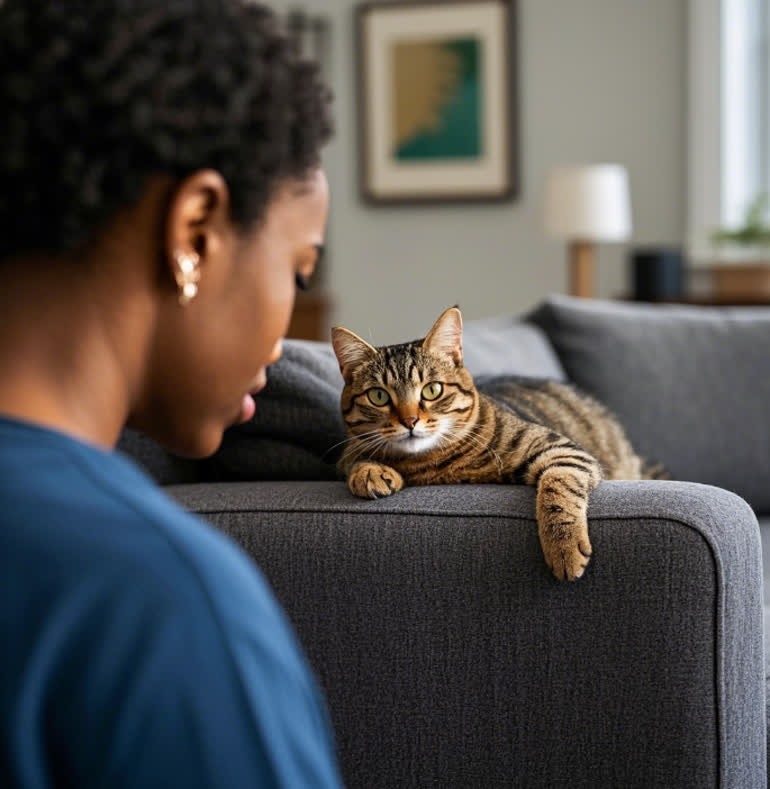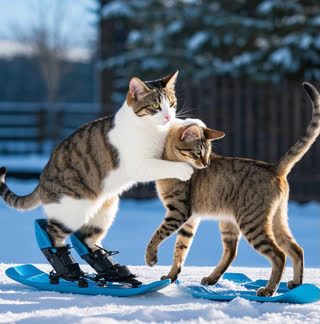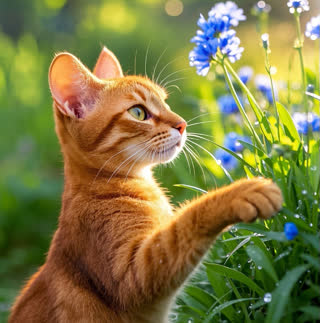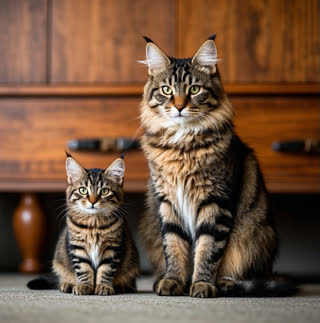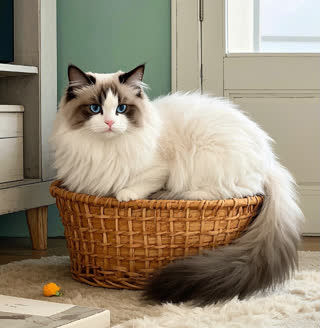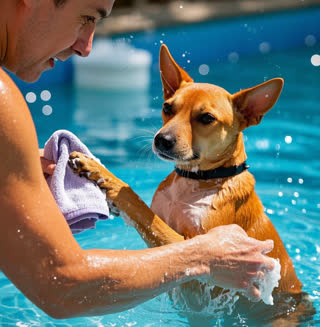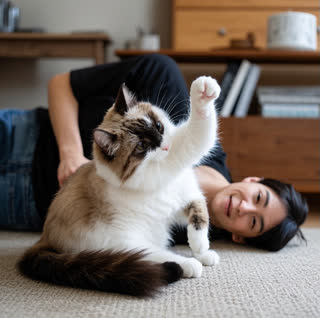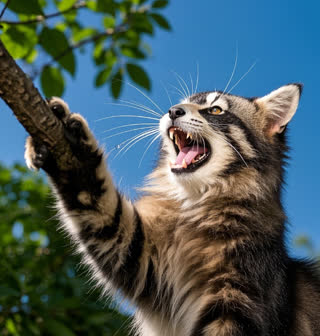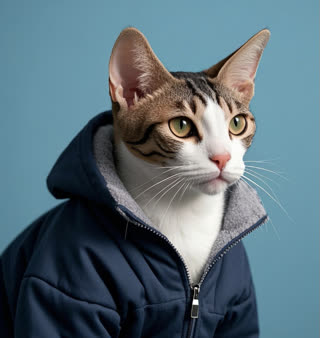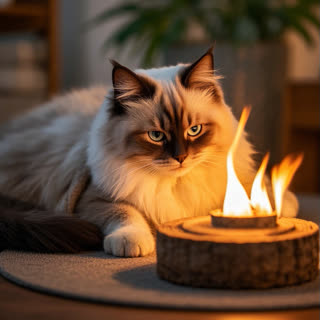As any cat owner knows, our feline companions can be enigmatic creatures. One moment they’re purring contentedly in your lap, and the next, they’ve knocked your favorite mug off the counter. But have you ever noticed your cat’s behavior shift afterward—ears flattened, tail swishing, or perhaps even a tentative nuzzle? These subtle cues might make you wonder: Do cats feel guilt? While the science behind feline emotions is still evolving, many pet parents swear their cats display cat apology signs when they’ve misbehaved. In this article, we’ll explore whether cats truly experience guilt, how they communicate remorse, and what you can do to strengthen your bond with your furry friend.
Understanding Feline Emotions: Do Cats Feel Guilt?
Guilt, as humans understand it, is a complex emotion tied to moral reasoning and empathy. It requires recognizing that one’s actions have harmed another and feeling remorseful. For years, experts debated whether cats, with their independent reputations, could experience such nuanced feelings. However, recent research suggests that while cats may not feel guilt in the same way humans do, they are acutely attuned to their owners’ emotions and can adjust their behavior accordingly.
Cats are highly social animals, and their relationships with humans are built on trust and mutual care. When a cat does something that upsets you—scratching the furniture, stealing food, or biting during play—they may notice your reaction (raised voice, sudden movement, or withdrawal of affection). This awareness can trigger a response similar to guilt, though it’s rooted in their desire to maintain a harmonious environment rather than a moral compass.
In essence, cats don’t feel guilt as we do, but they do recognize when their actions disrupt the peace. This recognition often leads them to exhibit cat apology signs to restore equilibrium in their relationship with you.
7 Common Cat Apology Signs and Guilt Signals
If your cat has ever “apologized” after misbehaving, you’ve likely witnessed one of these telltale behaviors:
- The “Guilty” Stare
After knocking over a plant or clawing the couch, your cat might freeze and stare at you intently. This isn’t defiance—it’s them gauging your reaction. Dilated pupils or flattened ears during this stare indicate they’re aware something’s wrong. - Avoidance or Hiding
Cats may slink away or hide if they sense you’re upset. They’re not feeling guilt per se but are reacting to your negative emotions to avoid conflict. - Exaggerated Affection
Have you noticed your cat suddenly rubbing against your legs, purring loudly, or bringing you a toy after misbehaving? This is their way of seeking reassurance and reaffirming your bond. - Slow Blinking
A slow, deliberate blink is a universal feline sign of trust and affection. If your cat approaches you with a slow blink after causing trouble, they’re signaling they want to reconcile. - Bringing Gifts
Cats may leave “gifts”—like a dead insect or a toy—at your feet as a peace offering. This behavior stems from their instinct to share resources, which they extend to their human family. - Lowered Body Posture
A hunched back, tucked tail, or crouched stance suggests your cat feels 不安 (uneasy). They’re trying to appear non-threatening and avoid provoking you further. - Quiet Meowing
A soft, hesitant meow or chirp might be your cat’s way of tentatively checking in on you. They’re waiting for your cue to approach.
Why Cats Act “Guilty” (Even If They Don’t Feel It)
While cats don’t experience guilt as humans do, their “apology” behaviors serve a purpose. Here’s why they act this way:
- Sensitivity to Your Emotions
Cats are masters at reading body language and tone of voice. If you’re angry or upset, they’ll notice and adjust their behavior to avoid conflict. - Rewarding Positive Interactions
Cats learn quickly that showing affection or keeping a low profile after misbehaving often leads to positive reinforcement (e.g., treats, praise, or cuddles). - Maintaining Social Harmony
In multi-cat households, cats use submissive behaviors to avoid fights. They extend this instinct to humans, ensuring their place in the family “pride.”
How to Respond to Your Cat’s Apology Signs
When your cat exhibits remorseful behavior, it’s crucial to respond in a way that strengthens your bond:
- Stay Calm
Avoid yelling or punishing your cat, as this can increase anxiety. Instead, take a deep breath and acknowledge their attempt to reconcile. - Redirect Their Behavior
If your cat misbehaves (e.g., scratching furniture), gently redirect them to an appropriate outlet, like a scratching post. Reward them when they use it. - Offer Positive Reinforcement
When your cat shows cat apology signs, respond with praise, treats, or a gentle pet. This reinforces that good behavior leads to positive outcomes. - Establish Clear Boundaries
Use consistent training to teach your cat what’s acceptable. For example, if they jump on the counter, calmly say “no” and place them on the floor. Over time, they’ll learn boundaries. - Spend Quality Time
Regular play sessions and cuddle time help reduce stress and prevent misbehavior. A tired, content cat is less likely to act out.
Debunking Myths About Cat Guilt
Myth 1: Cats Don’t Care About Their Owners
Reality: Cats form deep attachments to their humans. Their aloof reputation often masks subtle displays of affection.
Reality: Cats form deep attachments to their humans. Their aloof reputation often masks subtle displays of affection.
Myth 2: Punishing Cats Works
Reality: Negative reinforcement can damage trust and lead to fear-based behavior. Positive reinforcement is far more effective.
Reality: Negative reinforcement can damage trust and lead to fear-based behavior. Positive reinforcement is far more effective.
Myth 3: Cats Only Apologize to Avoid Consequences
Reality: While cats may associate certain behaviors with your reactions, their “apologies” are often genuine attempts to reconnect.
Reality: While cats may associate certain behaviors with your reactions, their “apologies” are often genuine attempts to reconnect.
Final Thoughts: Building Trust Through Understanding
So, do cats feel guilt? The answer lies somewhere between their unique emotional capacities and their desire to maintain harmony with you. By recognizing and responding to your cat’s apology signs and guilt signals, you can strengthen your bond and create a happier home for both of you. Remember, patience and positive reinforcement are key—after all, even the most mischievous cat deserves a second chance.
